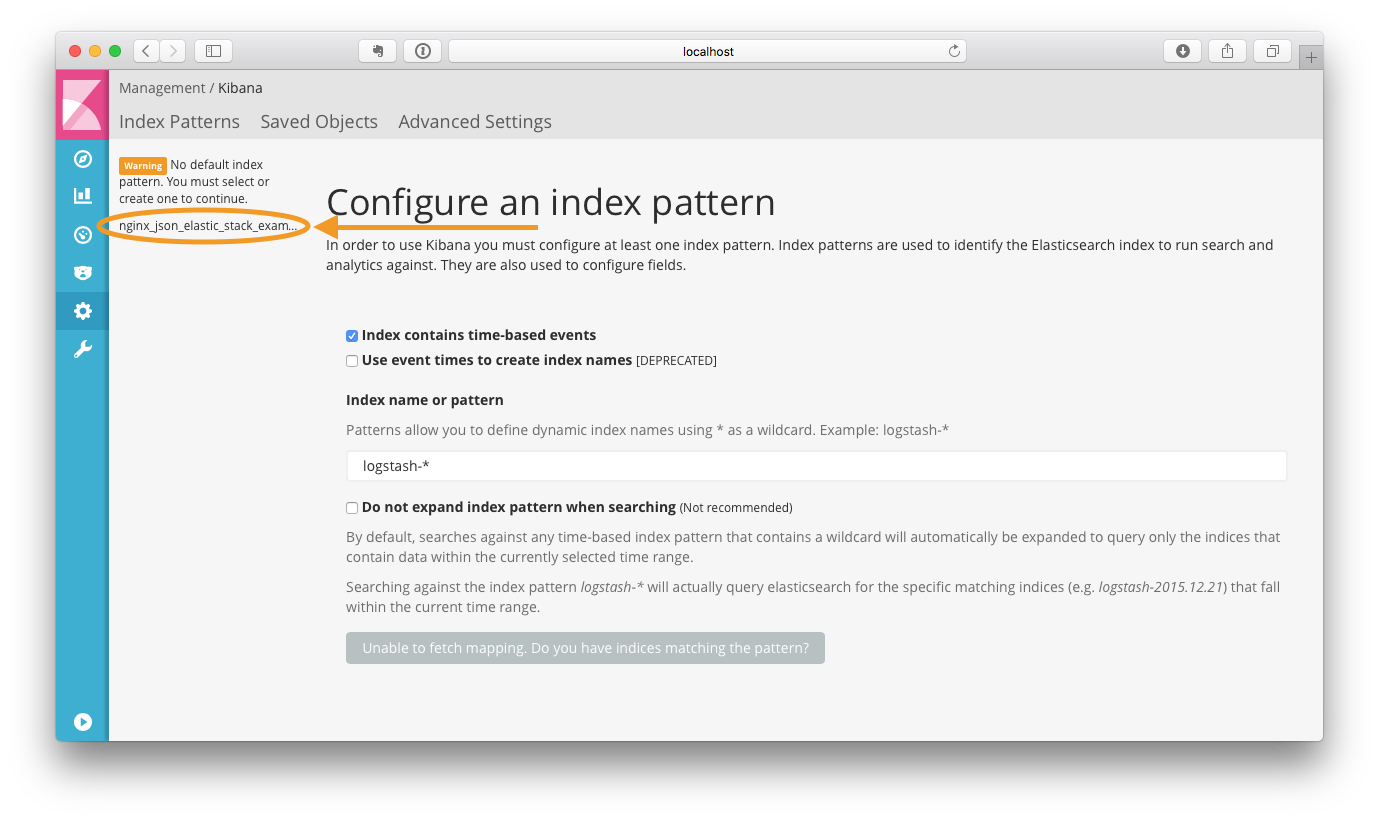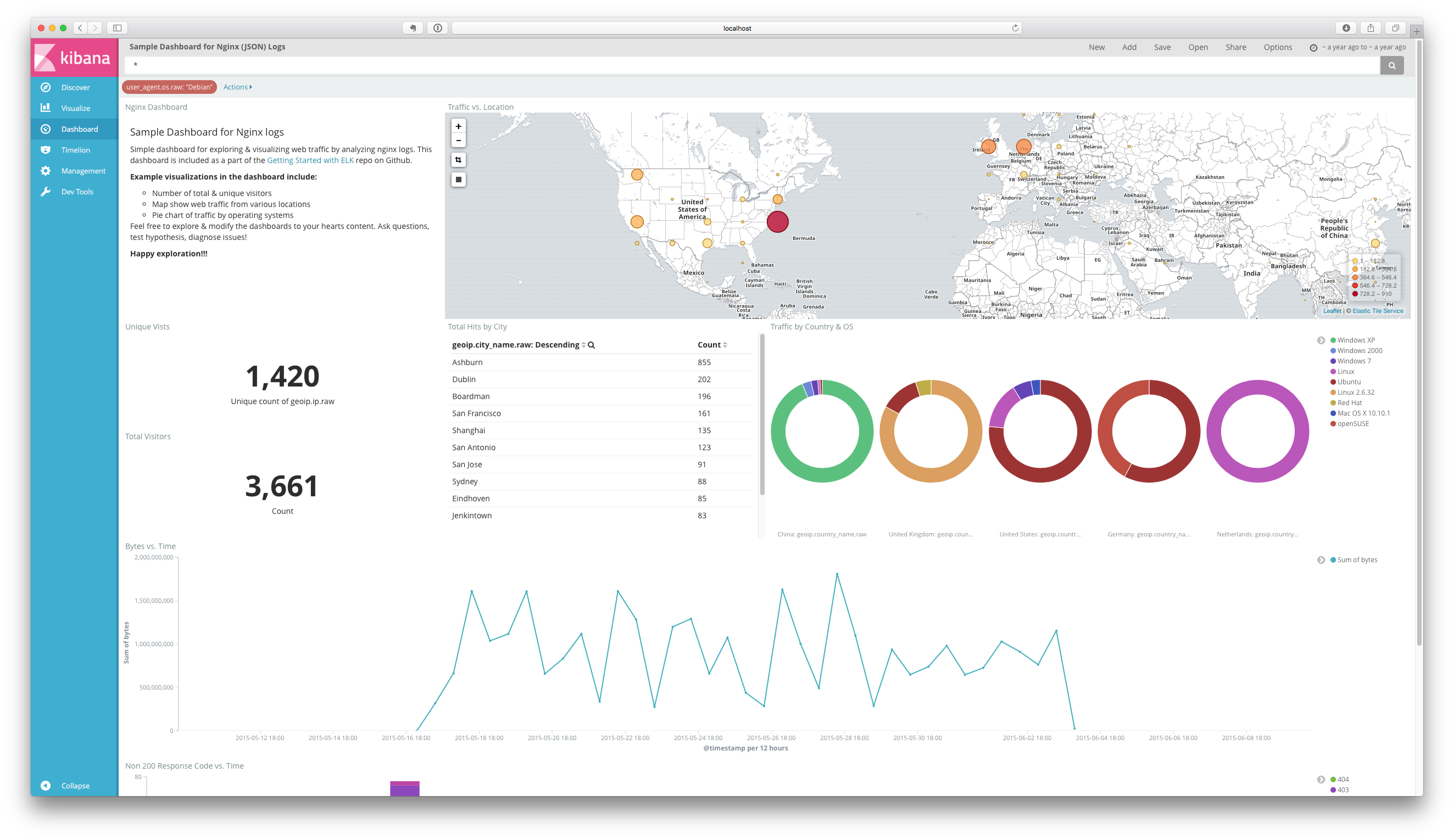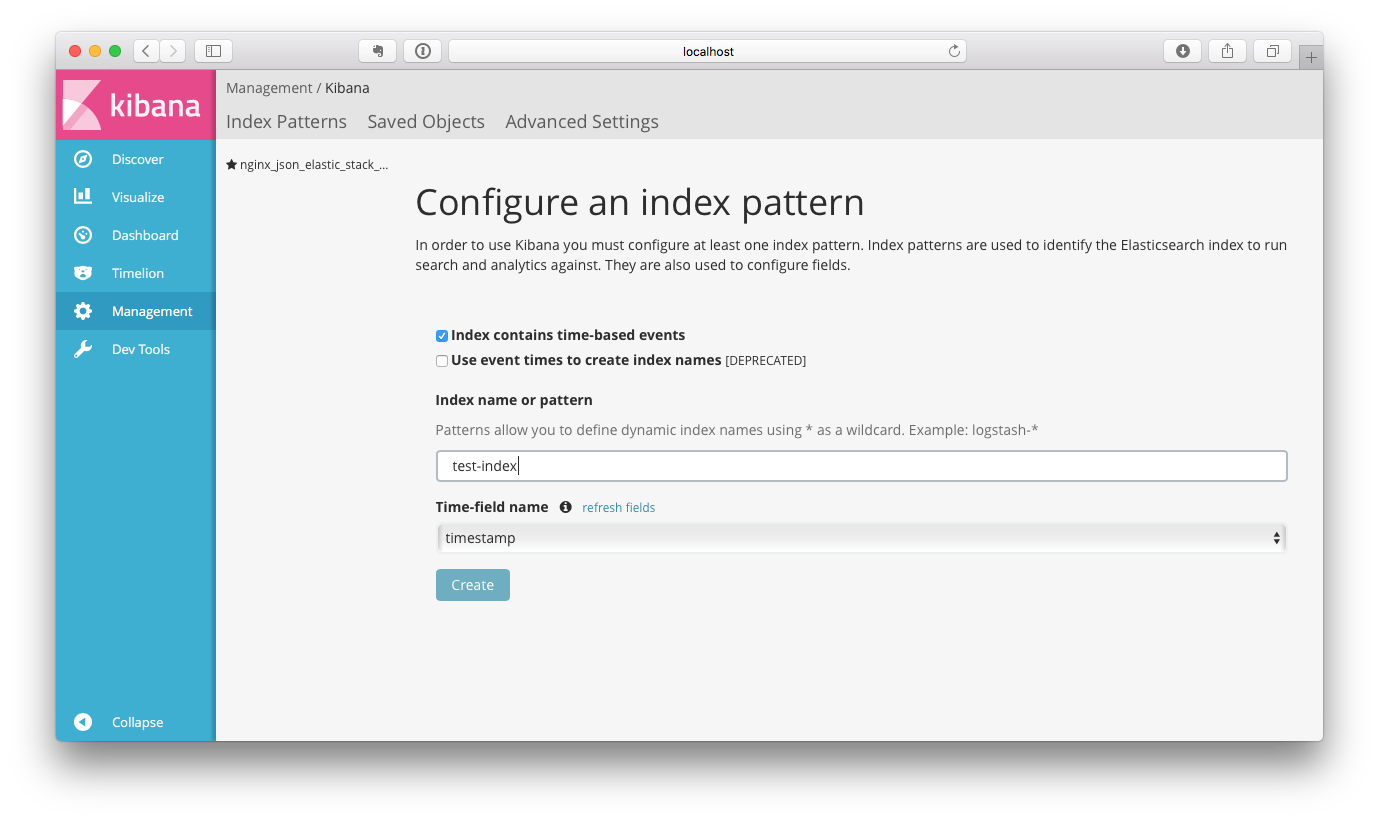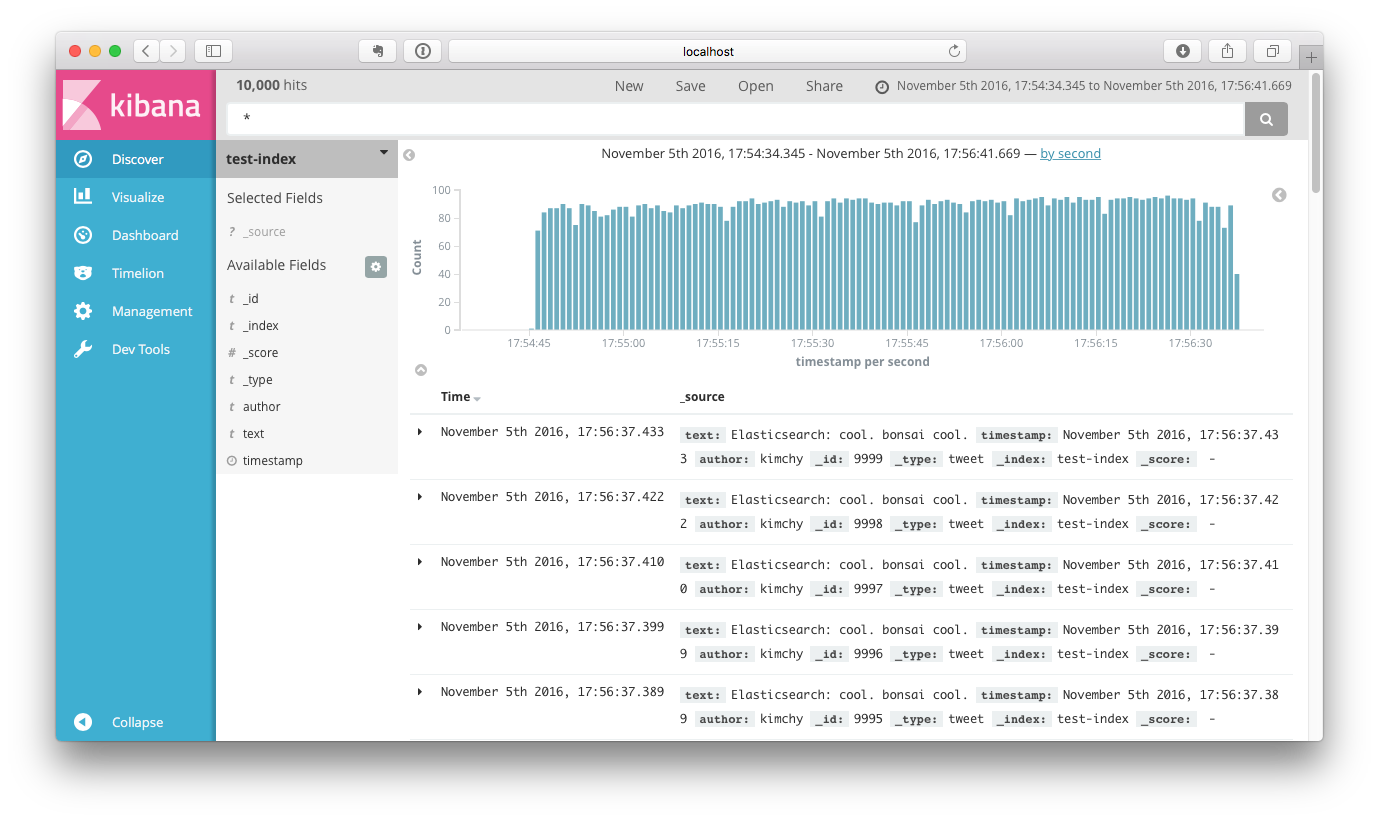$ docker run -d --name elstack -p 80:80 -p 9200:9200 blacktop/elastic-stack:geoip \
&& sleep 10 \
&& docker run --rm --link elstack:elasticsearch blacktop/es-dataClick on nginx_json_elastic_stack_example and ⭐ Set as default index
Click on Dashboard -> Open -> Sample Dashboard for Nginx (JSON) Logs
Let us index some data into Elasticsearch so we can try it out. To do this you can run config/test_index.py which contains the following code:
$ pip install elasticsearchfrom datetime import datetime
from elasticsearch import Elasticsearch
es = Elasticsearch(['http://<docker.container.ip>'])
for i in range(10000):
doc = {'author': 'kimchy', 'text': 'Elasticsearch: cool. bonsai cool.', 'timestamp': datetime.now()}
res = es.index(index="test-index", doc_type='tweet', id=i, body=doc)
# print(res['created'])
res = es.get(index="test-index", doc_type='tweet', id=1)
print(res['_source'])
es.indices.refresh(index="test-index")
res = es.search(index="test-index", body={"query": {"match_all": {}}})
print("Got %d Hits:" % res['hits']['total'])
for hit in res['hits']['hits']:
print("%(timestamp)s %(author)s: %(text)s" % hit["_source"])- Navigate to the docker-machine ip or docker ip in a web browser.
- Now enter
test-indexin the index field and select timestamp
- Go to the Discover Tab and see those absolutely gorgeous logs!
If you are using docker-machine navigate to $(docker-machine ip)
As a convenience you can add the docker-machine IP to you /etc/hosts file:
$ echo $(docker-machine ip) dockerhost | sudo tee -a /etc/hostsNow you can navigate to http://dockerhost from your host



